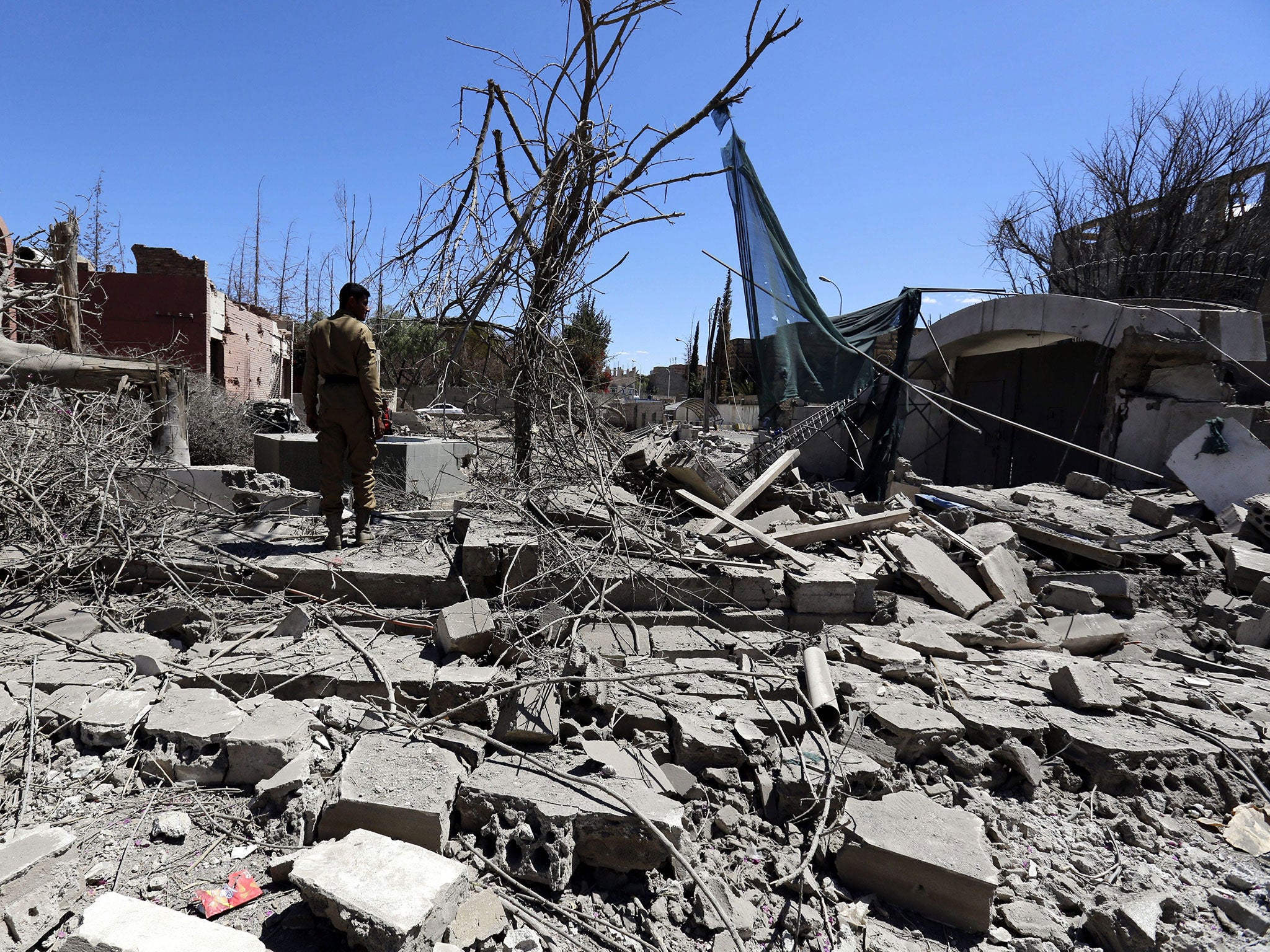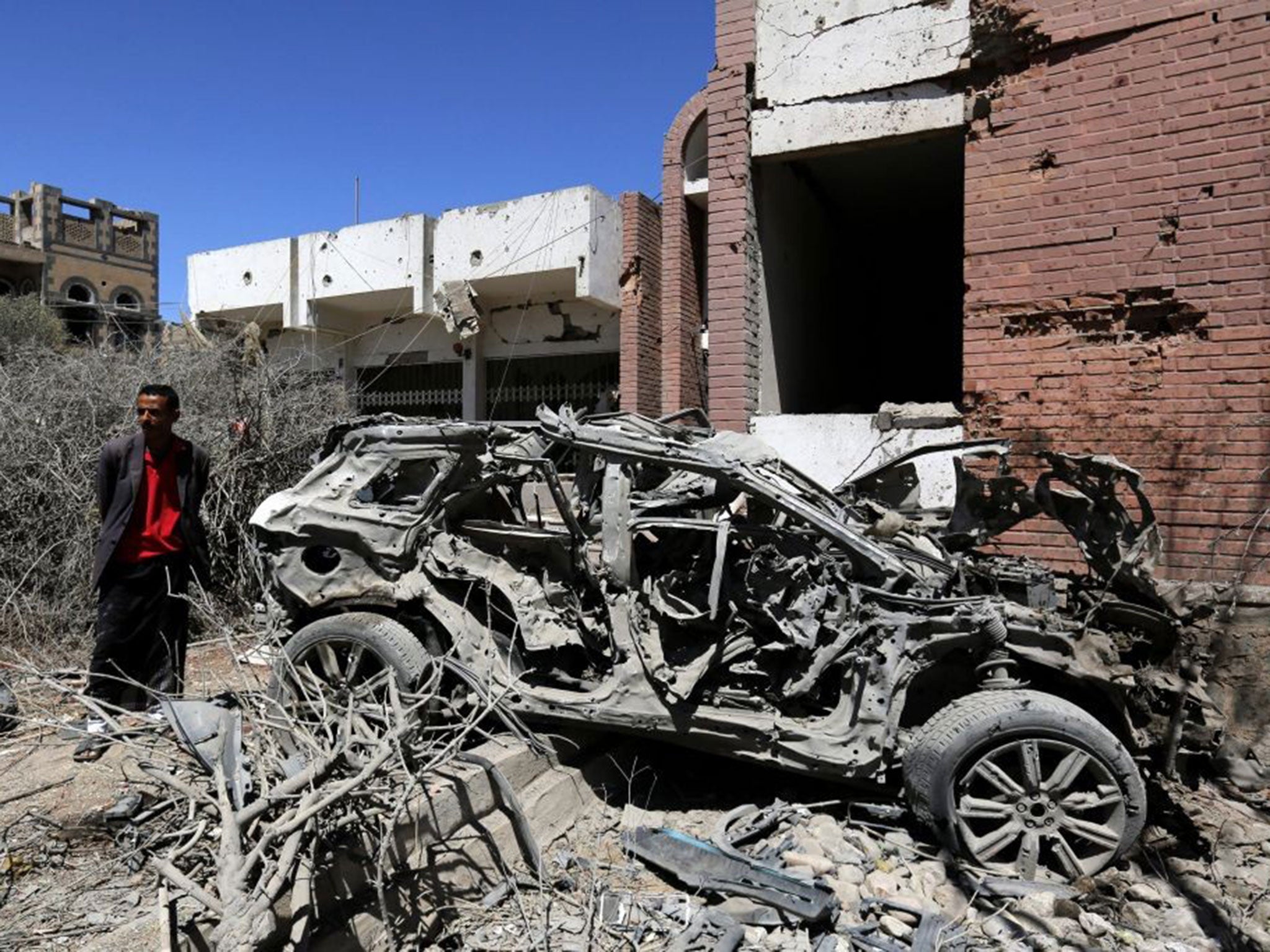Saudi Arabia accused of killing up to 30 civilians in market bombing in Yemen ahead of Arms Trade Treaty talks
Signatories of the Arms Trade Treaty were due to meet in Geneva on Monday

Your support helps us to tell the story
From reproductive rights to climate change to Big Tech, The Independent is on the ground when the story is developing. Whether it's investigating the financials of Elon Musk's pro-Trump PAC or producing our latest documentary, 'The A Word', which shines a light on the American women fighting for reproductive rights, we know how important it is to parse out the facts from the messaging.
At such a critical moment in US history, we need reporters on the ground. Your donation allows us to keep sending journalists to speak to both sides of the story.
The Independent is trusted by Americans across the entire political spectrum. And unlike many other quality news outlets, we choose not to lock Americans out of our reporting and analysis with paywalls. We believe quality journalism should be available to everyone, paid for by those who can afford it.
Your support makes all the difference.Saudi Arabia is accused of bombing a busy market in Yemen, killing at least 30 people in the latest alleged atrocity in its controversial air campaign.
At least 22 civilians were said to be among the dead in the Nihm district of Sana’a governorate, which houses the country’s capital.
Yemeni security officials announced the deaths on Saturday, saying burned bodies were left strewn through the area.

The country is in the grip of a year-long civil war between forces loyal to President Abdrabbuh Mansour Hadi and the rebel Supreme Revolutionary Committee, which controls large swathes of the country, including Sana’a.
The conflict has allowed al-Qaeda in the Arabian Peninsula and its affiliates to gain a significant foothold, with some towns also being seized by Isis.
Saudi Arabia is leading a military coalition in support of the Hadi government, waging a campaign of air strikes against Iran-backed Houthi rebels. But it has been accused of killing thousands of civilians while bombing hospitals, schools, mosques, and weddings.
The worsening humanitarian crisis has driven criticism of arms sales to Saudi Arabia by Britain, the US, France, Germany and other nations who sold drones, missiles and bombs worth $25 billion (£18 billion) to the Saudis in last year.
The European Parliament voted in favour of an EU-wide embargo on selling arms to Saudi Arabia on Thursday.
A resolution calling for a ban on all weapons sales to the country was passed by 359 votes to 212, with 31 MEPs abstaining.
While international observers have recognised abuses on all sides, the United Nations High Commissioner for Human Rights, Zeid Raad al-Hussein, said that a “disproportionate” number of attacks of civilians in Yemen had come from the Saudi-led invasion force.
Earlier this month, UN Secretary-General Ban Ki-moon said: “Yemen is in flames. Coalition air strikes in particular continue to strike hospitals, schools, mosques and civilian infrastructures.”
Signatories of the Arms Trade Treaty, which has the aim of “reducing the human suffering” by imposing restrictions on countries that violate international law, will meet in Geneva on Monday.
Amnesty International is among the groups calling on nations to “set their hypocrisy aside” and stop sales to Saudi Arabia.
“These countries are arming and aiding a campaign that’s bombing, killing and starving civilians,“ said the group’s Yemeni researcher Nawal al-Maghafi.
“I have witnessed the reality Yemenis are having to endure - watching bodies pulled from underneath the rubble in Sana'a or seeing body parts strewn across the site of a water-plant hit by an airstrike in Hajjah or attending a wedding party only to see it turn into a funeral.”
The Yemen conflict has killed more than 6,000 people since March 2015 and wounded over 35,000 more, according to the latest UN figures.
Additional reporting by AP
Join our commenting forum
Join thought-provoking conversations, follow other Independent readers and see their replies
Comments